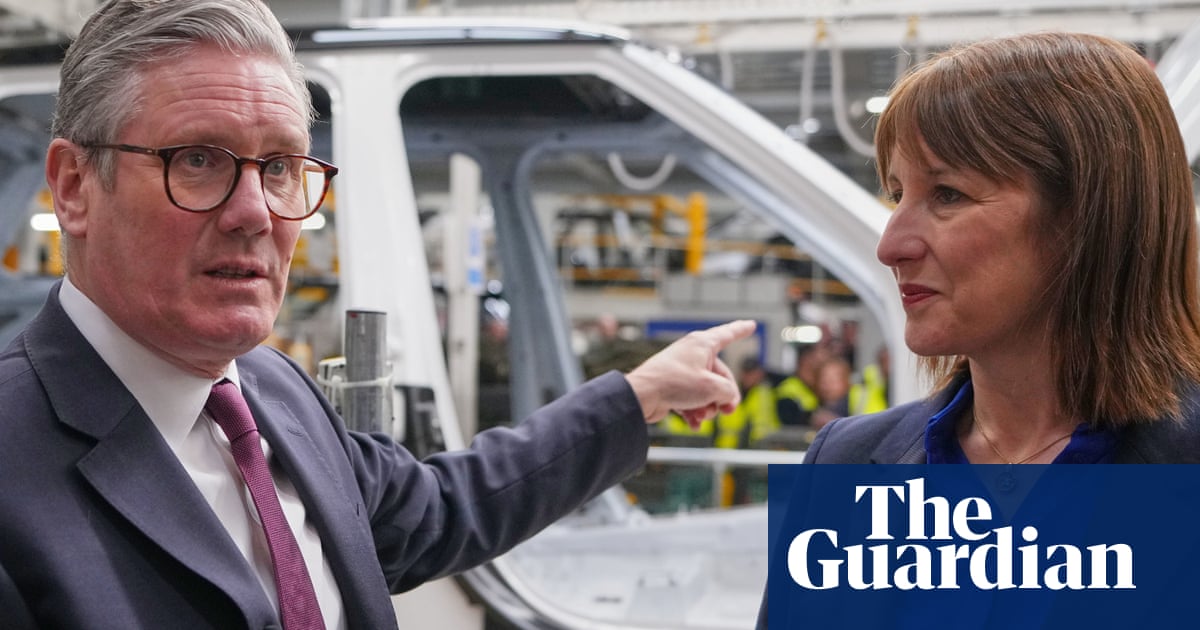Riding two horses is hard enough, but diplomats are joking in private that Keir Starmer andRachel Reevesare trying to ride three.
At the International Monetary Fund summit in Washington this week, Reeves sought toposition the UK as a beacon of free tradethat is open to business with the EU, US and China.
Riding those three horses is central to the government’s strategy for boosting growth and navigating the international stage at a time when old alliances are being upended and the post-cold war order redrawn.
What Reeves did not address is that the UK is being pulled in opposing directions that may soon force ministers to make choices between Brussels, Washington and Beijing.
Before the chancellor’s trade talks with the US treasury secretary, Scott Bessent, on Friday, it emerged that the US was pushing the UK torelax its rules on agricultural imports– the rules that ban chlorine-dipped chicken and hormone-treated beef from being sold in British supermarkets. Washington also wants lower UK tariffs on American cars.
UK officials were blindsided by the report and are increasingly playing down the prospect of a speedy economic deal with the US. Reeves said on Wednesday she was“not going to rush” into an agreementand ruled out watering down agricultural standards – though ministers are open to slashing tariffs on cars.
Behind the scenes, the erratic and unpredictable nature of Donald Trump’s administration is causing frustration inside the UK government and giving weight to arguments that ministers should focus their energies onrebuilding bridges with the EU.
Starmer met Ursula von der Leyen, the European Commission president, in London on Thursday in advance of a UK-EU summit next month.
As part of their wider reset in relations with Brussels,ministers are pursuing an agri-food agreementthat would reduce border checks and boost trade. Tory critics have warned this would cause problems in the US talks. But that may prove a price ministers are willing to pay, particularly given Labour’s manifesto commitment to maintaining high food standards in any trade deals.
The EU and UK, meanwhile, have been subject to increasing overtures fromChinasince Trump came to power. Xi Jinping has launched a charm offensive seeking closer ties with countries alienated by Trump’s belligerent tariff policy.
The UK has signalled it is open to those overtures and ministers have been unapologetic in their pursuit of closer ties with Beijing despite security and human rights concerns. Reevesargued last week it would be “very foolish” not to engagewith the world’s second largest economy.
The government is alive to the possibility of Washington turning its ire towards London’s rapprochement with Beijing. There have been reports the US will demand that countries sever ties with China as the price of securing tariff reductions.
But there are differing views in government and diplomatic circles over how big this problem will ultimately be, given there is no sign of a coherent US policy towards China yet. Trump has simultaneouslyexpressed optimism about improving trade relations with Beijingand triggered a trade war by imposing huge tariffs.
China, meanwhile, looks poised to lift sanctions on EU parliamentarians as part of efforts to revive a trade deal with the bloc. UK officials say they are expecting no such move when it comes to British parliamentarians under sanctions, who include the former Tory leader Iain Duncan Smith and the Labour peer Helena Kennedy, but that their cases have been raised in talks with the Chinese government. A UK-China trade deal still looks far off, but Beijing’s efforts to gain greater access to the EU market will fuel speculation that talks with Britain could be revived.
The challenges of riding three horses are not just international. Ministers are increasingly contending with domestic pressure when it comes to relations with all three powers.
Senior MPs including Liam Byrne, the business and trade committee chair, and Emily Thornberry, the foreign affairs committee chair,have called for any trade deal with the US to be subject to a voteby parliament. Dozens of MPs have written to ministers this weekurging them to strike a youth mobility deal with Brusselsdespite Home Office concerns about the impact on migration numbers.
The government hasbowed to backbench pressureto ban the UK’s national energy company from investing in projects that use solar panels linked to Chinese slave labour. And the government’s decision this month toseize control of British Steel from Jingye, the Chinese company that owns it, triggered a furious response from the Chinese embassy and demonstrated the limits of economic cooperation with Beijing.
Trade-offs are unavoidable, but ministers will nonetheless seek to postpone them for as long as possible.
